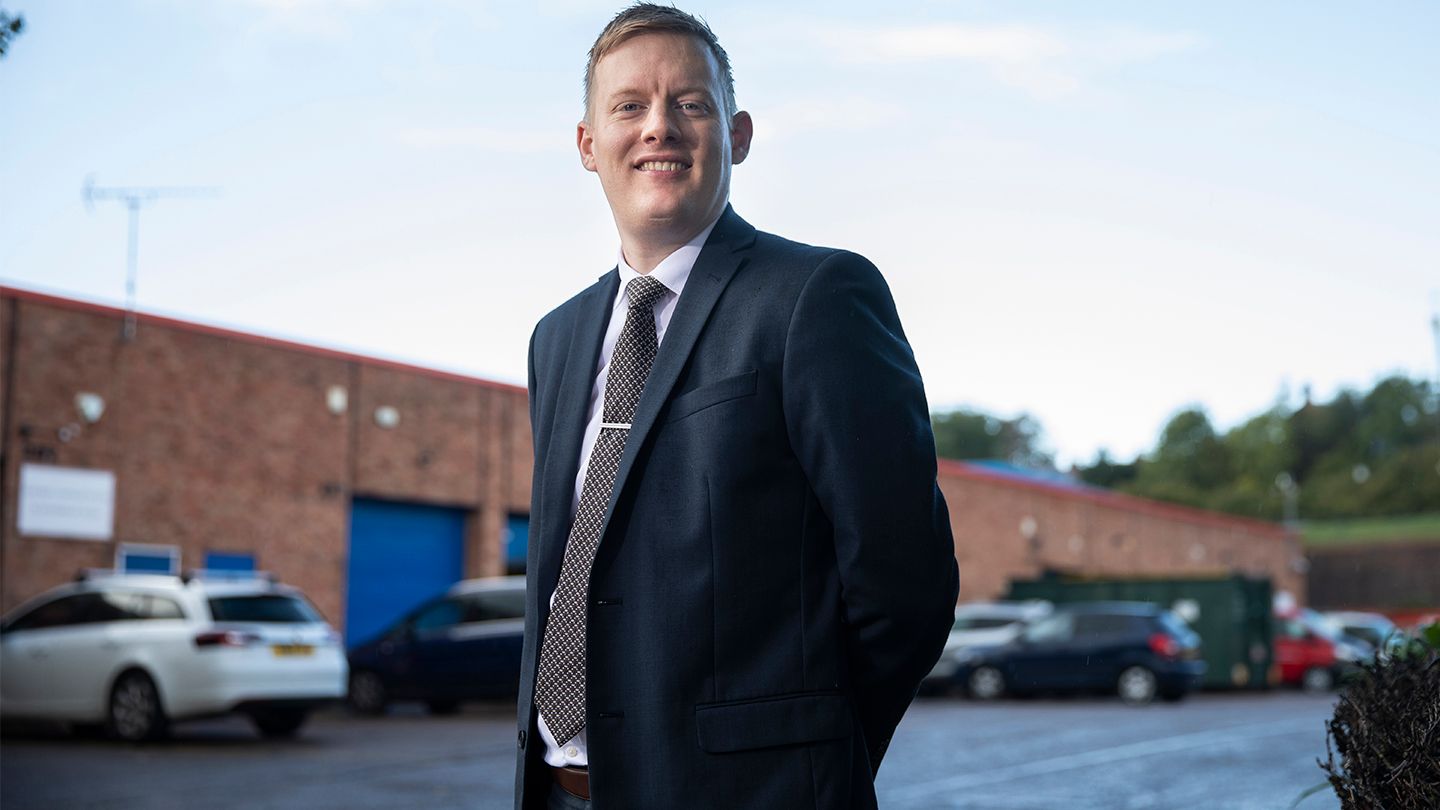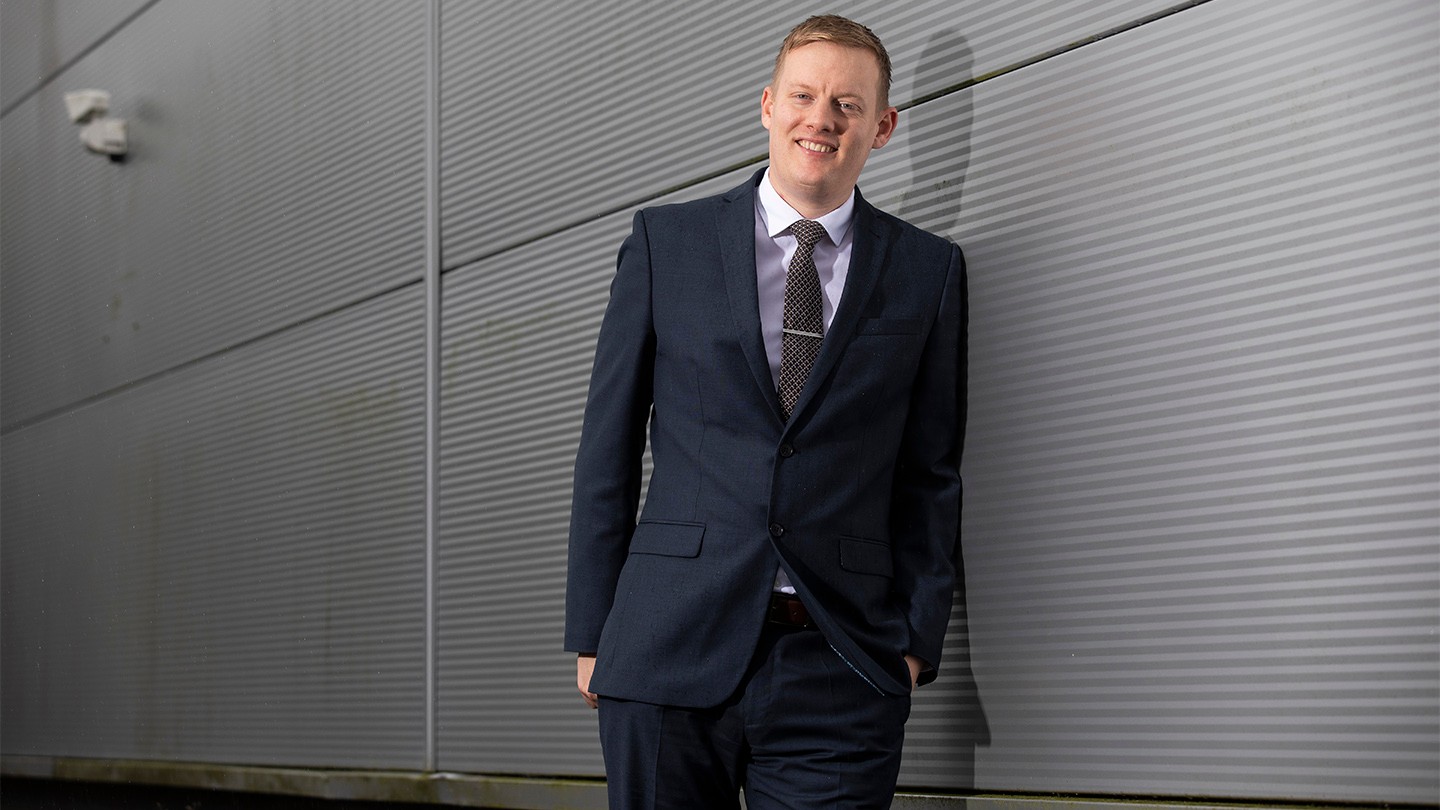
Growth
“People are asking how to Brexit-proof their business”
Next week, 2,200 Barclays relationship managers and colleagues from the wider bank are meeting with over 20,000 SMEs across the UK to help steer them through the uncertainties of Brexit. In the first in a two-part series, we hear from one of those taking part – Barclays Manufacturing, Transport and Logistics Relationship Director Tom Lewis – about offering support and finding practical solutions for small businesses navigating Brexit.
Tom Lewis is expecting a memorable day on Monday. Based in the bank’s West Midlands team as a Relationship Director, with many clients in the manufacturing sector, he’ll be pounding the streets talking to local businesses about how they’re dealing with Brexit – and how Barclays can support them.
Lewis is just one of 2,200 Barclays colleagues aiming to visit 20,000 small and medium sized businesses in one day to hear their concerns and share news about what the bank can do to help. The initiative – known as ‘On the front foot’ – is part of the bank’s efforts to supercharge its support for British business at a very challenging time.
In addition to the ‘front foot’ campaign of one-to-one meetings, Barclays is hosting 100 Brexit clinics in October and November, focusing on the agriculture and manufacturing sectors. Hundreds of SMEs also attended similar clinics in March, as Barclays announced a package of support for the sectors including a £14bn lending fund.
Launching the clinics, Barclays Group CEO, Jes Staley, said “We are already helping SMEs up and down the country prepare for whatever Brexit will bring. Now our clinics will provide tailored advice to agricultural and manufacturing businesses, ensuring these essential sectors have access to the information they need through this period of uncertainty.”

Tom Lewis will be meeting hundreds of businesses to discuss their concerns
“Barclays has a relationship-focused model,” explains Lewis. “We go out and get good understandings of our clients’ businesses and then we work out how we can support them. That might be for working capital, overdrafts, confidential invoice discounting, asset finance to purchase new machines, foreign exchange – but whatever it is, the key is getting out and talking to clients, listening to them, and making suggestions of how we can help them.”
“Brexit is already coming up in one way or another in every client meeting”, says Lewis. “On quarterly visits across the UK, I find people are asking how to Brexit-proof their business. There’s no one answer to that, but it’s about being aware of the challenges. For example it’s really important that businesses map out their future supply chains”
Lewis’s team is keen to be the most visible in their communities – “whether industrial estates or high streets”. A previous ‘On the front foot’ campaign day in June saw Lewis “not pushing an agenda, but showing what we can offer as a relationship-focused bank”.
He adds: “I’m hoping that the work that we’ve done in speaking to clients means that people have been thinking more about the levers they can pull in the event of an extreme outcome.
It’s been going on so long that we have seen many businesses take the time to talk to suppliers and secure working capital, but there can always be curveballs. People are trying to get on with life, while being mindful of external factors that can impact their businesses.”
For Lewis, it’s important that Barclays colleagues take initiative and meet SMEs at this vital time. “We wouldn’t be doing our jobs properly if we weren’t being visible as an organisation.
“This is a more focused version of what we always do, but with the backdrop of the Brexit clinics and discussions around that event – alongside all the other useful things like cyber fraud awareness.”
“I’m hoping that the work that we’ve done in speaking to clients means that people have been thinking more about the levers they can pull in the event of an extreme outcome”
Barclays Relationship Director
“Open dialogue helps me add value”
Beyond Brexit, Lewis says the major development in his sector is automation. With the potential to revolutionise manufacturing businesses, accelerating levels of automation provide challenges and opportunities for both SMEs and the banks that serve them.
But, as with Brexit, Lewis says that “the businesses I’m seeing who are able to continue to trade really well through this period are the ones who are thinking about the future and not just working one day to the next. They’re thinking about the technology available and making plans to use it. The ones who are standing still are less prepared to cope with those changes, and by definition their competitors might move first.”
As the manufacturing industry continues to grapple with uncertainty, what advice does Lewis find himself giving again and again? “The biggest thing at the moment is to stay close to liquidity and cashflow,” he says. “We’re looking at a potential period of uncertainly with unknown outcomes, and I take confidence from businesses who are looking at both the headwinds and potential opportunities.
“A lot of people are ‘head down carry on’ – but be open, talk, ask questions, be challenging of the bank to understand what things are available to assist if things change overnight. The best relationships I have are the ones with open dialogue – that helps me add value, whether through products or sector knowledge or introductions.”